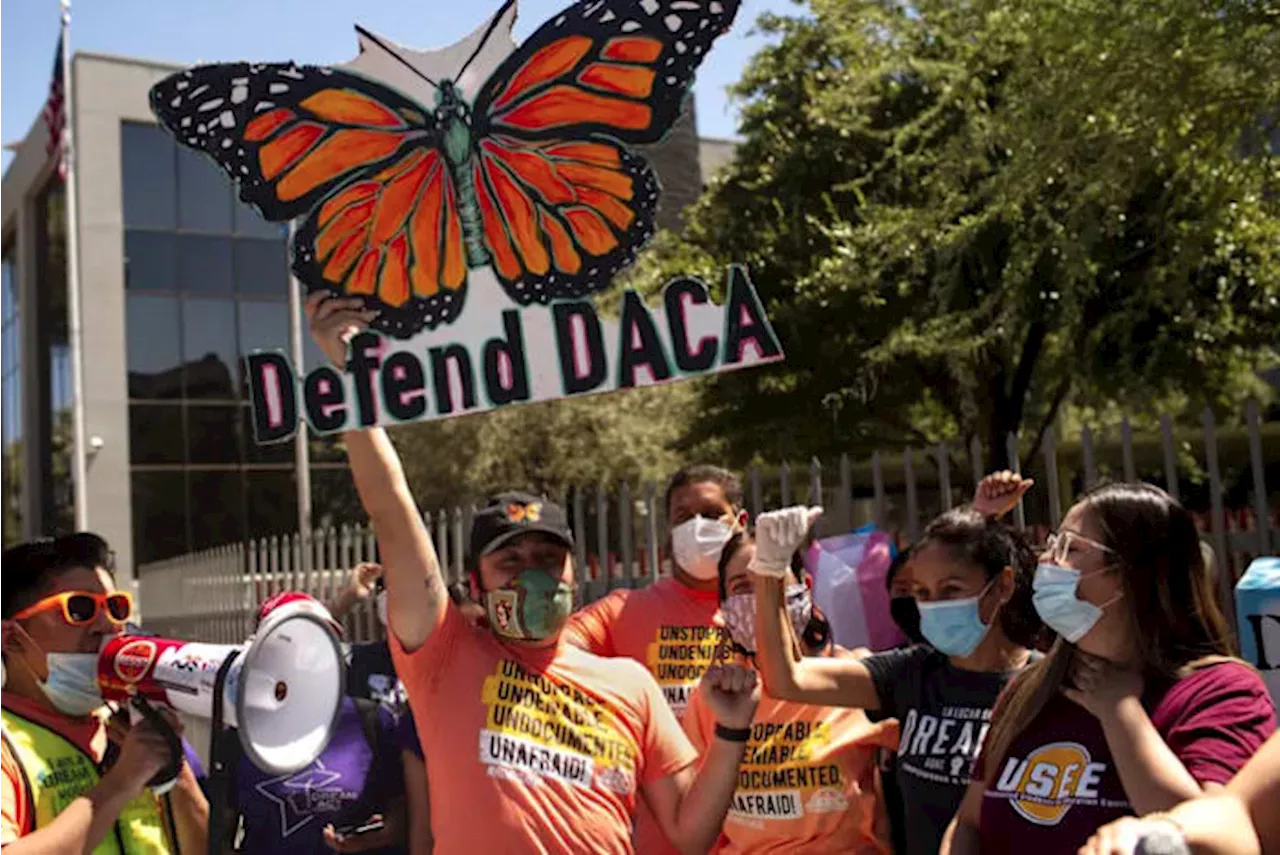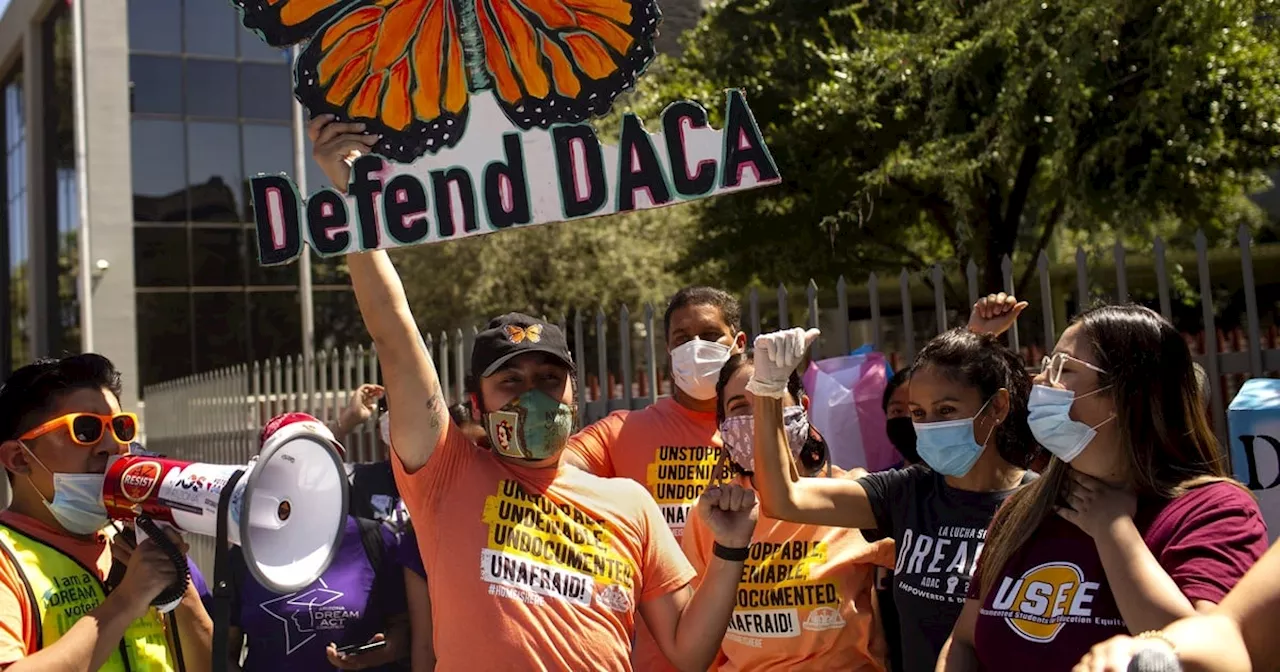The U.S. Court of Appeals for the Fifth Circuit ruled that the Deferred Action for Childhood Arrivals (DACA) program is illegal, but USCIS will continue processing renewals for current beneficiaries. While the ruling leaves new applications in limbo, advocates remain hopeful that the Supreme Court will overturn the decision.
The U.S. Court of Appeals for the Fifth Circuit's recent decision against the Deferred Action for Childhood Arrivals ( DACA ) program was not unexpected, given the court's history with the program, which has been embroiled in legal battles since President Donald Trump attempted to end it during his first term. The federal appeals court dealt a blow to DACA by declaring it illegal, though the U.S.
Citizenship and Immigration Services will continue processing DACA renewals for current beneficiaries. While the court ruling confirmed the status quo that has been in place for the past few years, the future of the DACA program remains uncertain. Matias Bernal, executive director of the Education & Leadership Foundation, a Fresno-based non-profit organization that provides immigration services to DACA beneficiaries in the Central Valley, said the January 17th ruling was disappointing, “but it didn’t surprise us.” “We were expecting a ruling of this kind considering the location where it happened and the fact that it was the same district court that ruled DACA unconstitutional a couple of years ago,” said Bernal, a DACA beneficiary since 2013. The court decision is the latest chapter in a long-standing litigation challenging the DACA program. The district court determined that Texas still has standing to challenge DACA and declared the program illegal. However, USCIS will continue processing renewals for DACA beneficiaries at this time. The ruling leaves the DACA program in limbo for new applicants. While the ruling indicated it would focus on the impacts in Texas, DACA advocates said they don’t know exactly how that will play out at this moment. “We’re going to have to wait and see what implications come after that,” said Bernal. In 2021, a district court determined that Texas has standing to challenge DACA and deemed the program illegal. The court halted the program and prohibited the federal government from approving new DACA applications but allowed those who had already received their status to renew it. Over 150,000 undocumented Californians benefit from the DACA program. Over 800,000 people have had DACA at some point since the program's creation in 2012. Roughly 530,000 undocumented immigrants in the country, often called Dreamers, maintain protections under DACA. Bernal, who has been open about what it's like to live under the constant uncertainty of deportation as a DACA beneficiary, said that “we're in the status quo.” “We hope that the Supreme Court takes the case and hopefully overturns the ruling,” said Bernal. DACA beneficiaries can still apply to renew their status. Bernal encouraged beneficiaries to renew if their work permit expires within a year or less. Renewals for these applications take an average of four months, according to the U.S. Citizenship and Immigration Services website. DACA, created in 2012 by then-President Barack Obama through an executive order, protects undocumented immigrants who arrived in the United States as children from deportation and provides them with work authorization and Social Security numbers. However, the program's future is uncertain. Trump has vowed to continue mass deportations and end policies like DACA and birthright citizenship during his second term. In 2019, the court ruled in favor of DACA beneficiaries and determined that the Trump administration had not provided a reasonable explanation for ending the program. “The Fifth Circuit’s conservative court also underscored the profound value of DACA in its ruling by highlighting that ending the policy would cause substantial harm to DACA recipients,” said Todd Schulte, president of FWD.us, a bipartisan political organization based in Washington, D.C. “As the court ruled that Texas had only demonstrated harm to itself, this ruling does not establish a nationwide injunction on DACA.” “No one should have to live their life from one court ruling to the next, or in increments of two years,” said Schulte. “DACA has transformed the lives of many. It’s time for DACA recipients, and so many others, to have a path to citizenship.
DACA Deferred Action For Childhood Arrivals Immigration Supreme Court Texas USCIS Dreamers
United States Latest News, United States Headlines
Similar News:You can also read news stories similar to this one that we have collected from other news sources.
 Appeals court rules against DACA, but leaves protections for migrants in placeA federal appeals court on Friday ruled against an Obama-era policy to shield immigrants who came to the country illegally as young children, only three days before Donald Trump takes office with pledges of mass deportations.
Appeals court rules against DACA, but leaves protections for migrants in placeA federal appeals court on Friday ruled against an Obama-era policy to shield immigrants who came to the country illegally as young children, only three days before Donald Trump takes office with pledges of mass deportations.
Read more »
 Appeals Court Rules Against DACA, Setting Up Potential Supreme Court ShowdownA federal appeals court dealt a blow to the Deferred Action for Childhood Arrivals (DACA) program, ruling against an Obama-era policy that shielded young immigrants who arrived in the U.S. illegally as children. The decision, which bars the federal government from accepting new DACA applications, could lead to another Supreme Court battle over the program's future.
Appeals Court Rules Against DACA, Setting Up Potential Supreme Court ShowdownA federal appeals court dealt a blow to the Deferred Action for Childhood Arrivals (DACA) program, ruling against an Obama-era policy that shielded young immigrants who arrived in the U.S. illegally as children. The decision, which bars the federal government from accepting new DACA applications, could lead to another Supreme Court battle over the program's future.
Read more »
 Federal Appeals Court Rules DACA Unlawful, Raising Concerns for 'Dreamers'A federal appeals court has declared the Deferred Action for Childhood Arrivals (DACA) immigration policy unlawful, casting a shadow of uncertainty over the future of hundreds of thousands of 'Dreamers' brought to the U.S. as children. The ruling, while partially stayed, could ultimately lead to the Supreme Court deciding the fate of this long-debated program. The Biden administration's efforts to codify DACA were deemed to violate U.S. immigration law, with the court focusing its impact on Texas, the state leading the legal challenge against DACA. The ruling's implications for current DACA beneficiaries remain unclear, pending further court decisions.
Federal Appeals Court Rules DACA Unlawful, Raising Concerns for 'Dreamers'A federal appeals court has declared the Deferred Action for Childhood Arrivals (DACA) immigration policy unlawful, casting a shadow of uncertainty over the future of hundreds of thousands of 'Dreamers' brought to the U.S. as children. The ruling, while partially stayed, could ultimately lead to the Supreme Court deciding the fate of this long-debated program. The Biden administration's efforts to codify DACA were deemed to violate U.S. immigration law, with the court focusing its impact on Texas, the state leading the legal challenge against DACA. The ruling's implications for current DACA beneficiaries remain unclear, pending further court decisions.
Read more »
 Appeals Court Rejects Obama-Era DACA PolicyA federal appeals court ruled against an Obama-era policy that protected immigrants brought to the U.S. illegally as children, dealing a setback to the Deferred Action for Childhood Arrivals program. While the decision doesn't immediately affect current beneficiaries, the inability to accept new applications raises concerns about the program's future.
Appeals Court Rejects Obama-Era DACA PolicyA federal appeals court ruled against an Obama-era policy that protected immigrants brought to the U.S. illegally as children, dealing a setback to the Deferred Action for Childhood Arrivals program. While the decision doesn't immediately affect current beneficiaries, the inability to accept new applications raises concerns about the program's future.
Read more »
 Appeals court rules DACA, Obama-era immigration policy, is unlawfulTexas Attorney General Ken Paxton, who led the challenge on behalf of Republican-led states, called the ruling 'a major victory'
Appeals court rules DACA, Obama-era immigration policy, is unlawfulTexas Attorney General Ken Paxton, who led the challenge on behalf of Republican-led states, called the ruling 'a major victory'
Read more »
 Federal Appeals Court Rules Against DACAA federal appeals court has ruled against the Deferred Action for Childhood Arrivals (DACA) program, an Obama-era policy that shielded immigrants who arrived in the US illegally as children. The decision, which marks the latest setback for DACA, prohibits the federal government from accepting new applications while current beneficiaries can renew their permits. While the ruling does not immediately change the status of DACA recipients, it raises concerns about the program's future and its vulnerability to further legal challenges.
Federal Appeals Court Rules Against DACAA federal appeals court has ruled against the Deferred Action for Childhood Arrivals (DACA) program, an Obama-era policy that shielded immigrants who arrived in the US illegally as children. The decision, which marks the latest setback for DACA, prohibits the federal government from accepting new applications while current beneficiaries can renew their permits. While the ruling does not immediately change the status of DACA recipients, it raises concerns about the program's future and its vulnerability to further legal challenges.
Read more »
